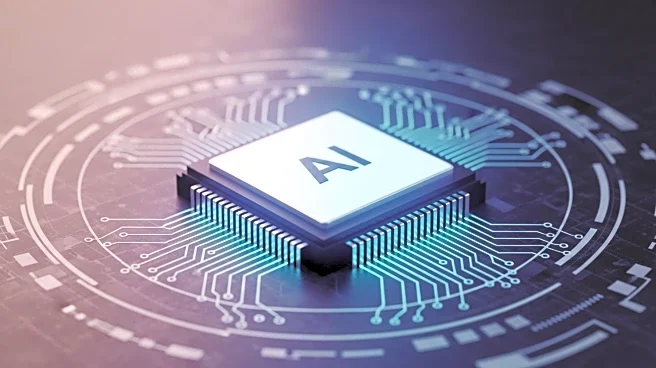What's Happening?
Anthropic, an artificial intelligence company known for its chatbot Claude, has agreed to a $1.5 billion settlement in a class-action lawsuit filed by book publishers and authors. The lawsuit accused Anthropic of copyright infringement for downloading and storing digital copies of millions of books without permission. The settlement, filed in federal court, allows Anthropic to avoid a trial and does not require the company to admit any wrongdoing. This case is part of a broader legal battle between AI firms and human creators, with similar lawsuits filed against companies like Google, Meta, Microsoft, and OpenAI. The settlement, which still requires court approval, is the largest copyright recovery in history, according to Justin A. Nelson, a lawyer representing the plaintiffs.
Why It's Important?
The settlement marks a significant moment in the ongoing conflict between AI companies and copyright holders. It underscores the challenges faced by AI firms in navigating copyright laws while developing their technologies. The agreement could set a precedent for future cases, influencing how AI companies approach the use of copyrighted materials. For authors and publishers, the settlement represents a victory in protecting their intellectual property rights against unauthorized use by AI models. The outcome may encourage more creators to pursue legal action against AI firms, potentially impacting the development and deployment of AI technologies in the U.S.
What's Next?
The settlement awaits court approval to become official. If approved, Anthropic will pay approximately $3,000 per book to a settlement fund, which will be distributed to the rightsholders. The case has clarified some legal aspects of AI's use of copyrighted materials, but other questions remain unresolved. The ruling by Judge William Alsup that training AI models with copyrighted books can be considered 'fair use' may influence future legal interpretations. Stakeholders in the AI industry and copyright sectors will likely monitor the case's resolution closely, as it could affect future legal strategies and business practices.
Beyond the Headlines
The settlement highlights the ethical and legal complexities of AI development, particularly concerning intellectual property rights. It raises questions about the balance between innovation and the protection of creative works. As AI technologies continue to evolve, the industry may face increased scrutiny and calls for clearer regulations to ensure fair use and respect for copyright laws. The case also reflects broader societal concerns about the impact of AI on traditional industries and the need for legal frameworks that address these challenges.










